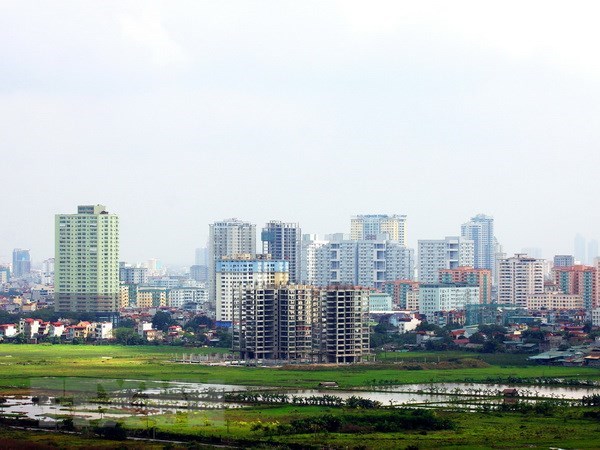Property market receives over 27 percent of total FDI
The growing foreign direct investment (FDI) in Vietnamese property has shown investors’ greater expectations of the market, insiders said.
 |
| My Dinh II residential area in Nam Tu Liem district, Ha Noi |
Foreign investors poured 20.33 billion USD into Viet Nam between January and June, up 5.7 percent from a year earlier. Real estate received 5.54 billion USD or 27.2 percent of the capital, becoming the second biggest sector in FDI attraction, according to the Foreign Investment Agency under the Ministry of Planning and Investment.
Property experts said the FDI growth indicates positive signs in the market. About a decade ago, although the FDI capital channelled into real estate was also considerable, it accounted for only some 10 percent of the total in Viet Nam.
The rise of foreign investment is expected to help standardise the property market and improve the standing of Vietnamese real estate. In the short term, property supply will become more abundant and diverse.
Notably, in the first half of 2018, the Hanoi People’s Committee granted an investment certificate for Japan’s Sumitomo Group and its Vietnamese partners to carry out a smart city building project worth 4.13 billion USD in Dong Anh district. The Republic of Korea’s Lotte Group also pledged to invest 600 million USD in a shopping, office and hotel complex in Hanoi.
Nguyen Hoai An, Director of the CBRE Hanoi Branch, said the higher FDI poured into real estate proves that investors are particularly interested in the Vietnamese market, which has been much more open to foreigners in recent years.
The rapid increase of foreign visitors to the country has also helped its property become more popular. Particularly, through initial public offerings and bond auctions, Viet Nam has appealed more attention from international investors.
An said that global investors began paying attention to Vietnamese property about 10 years ago, but they mainly poured capital into casino projects then.
Now, they have switched their focus to housing and consumption property, which is the long-term demand in the market. This is also a difference in the flow of FDI into Vietnamese real estate in 2018, she added.
(Source: VNA)